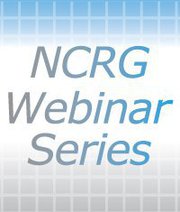Treating Addiction Is A Complex Issue – Observations From The NCRG Staff

The NCRG Webinar Series is a great way to obtain the essential training for clinicians and researchers to understand science-based information about gambling disorders and responsible gaming. We like to cover a wide variety of topics related to this issue and give a diverse group of people the tools they need to apply the research findings to their everyday lives.
This is the same approach that we take during the pre-conference workshops for the NCRG Conference on Gambling and Addiction. Last year, we had the pleasure of having Mark Dixon, Ph.D., from Southern Illinois University lead aworkshop on Acceptance and Commitment Therapy (ACT). We were excited when he agreed to do an NCRG webinar on this topic more than 200 attendees last week.
Dr. Dixon’s presentation covered the basis of ACT. For those of you who don’t know, ACT is a unique evidenced-based psychological intervention that uses acceptance and mindfulness strategies together with commitment and behavior change strategies to increase psychological flexibility. It is considered a second generation cognitive behavioral therapy (CBT) model and is based on behavioral principles on the nature of language and cognition. He also outlinedthe six tenets of ACT: contact with the present moment, acceptance, diffusion, self as context, values and committed actions.
By explaining the difference between ACT, CBT, Motivational Interviewing and other therapeutic options, Dr. Dixon’s presentation elicited one very clear observation:there is no treatment standard for gambling disorders yet. As with any other psychological disorder, individuals can respond differently to treatment. Research has also shown that, in some cases, those with a gambling disorder can even enter recovery on their own. One person may be very responsive to CBT, being able to recognize their thought process that makes them want to gamble and modifying their behavior accordingly. Another person may be more receptive to ACT, allowing them to accept what they’re thinking and find other committed actions, instead of gambling, that align with their core values.
Treatment for addiction, whether substance use or one that is substance-less such as a gambling disorder, can vary for the individual. For clinicians and researchers, it is most important to understand and use evidence-based therapy techniques. If not, we have no measure by which to evaluate a treatment strategy for addiction.
For those of who you attended theNCRG webinar on July 31, what did you take away from Dr. Dixon’s session? Please leave your comments in the section below.
NCRG staffICRG NewsACTDr. Mark DixonNCRG Conference on Gambling and AddictionWebinar Series

